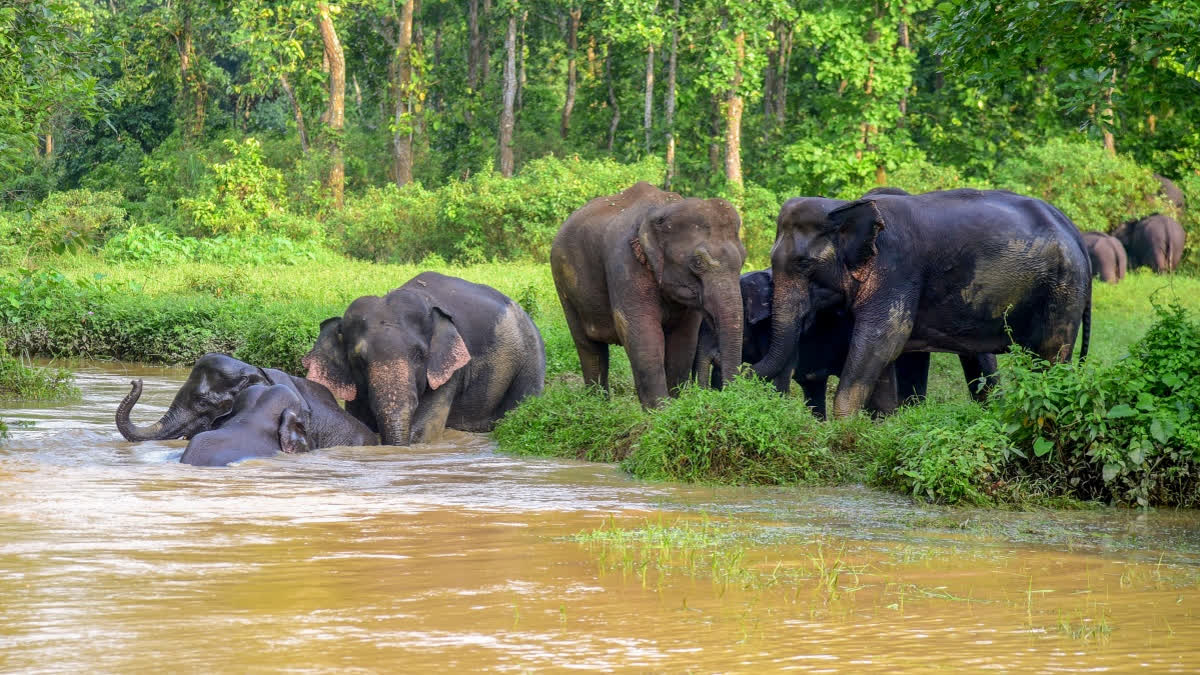New Delhi: Wrinkles on an elephant's trunk could reveal if it is right- or left-trunked -- indicating its preference for wrapping objects towards its right or left side, a study has found.
While the mammals are known to use the farthest portion of their trunks for wrapping food and other objects, researchers from the Humboldt-University of Berlin, Germany, observed that whiskers or hairs on the trunk are longer on the side towards which the elephants prefers wrapping objects.
This preference gives an elephant its "trunkedness" -- something that a baby elephant is not born with and develops with age and how it bends its trunk, the researchers said. The repeated motion leads to wrinkle formation on the farthest portion of the trunk, they said.
"A 'left-trunker' would preferably wrap their trunk towards the left of their body and perform left-oriented behaviours with the trunk, thereby frequently compressing the left side of their distal trunk and stretching the right side at the same time," the authors wrote in the study published in the journal Royal Society Open Science.
The team studied dead specimens of 10 Asian and five African elephants, along with photographs of foetuses, and found that the side bearing longer whiskers or hairs also bore more wrinkles. The opposite side was seen to have fewer whiskers as it was more in contact with the ground, they added.
The authors also found about 1.5 times more wrinkles on the trunks of Asian elephants, compared to African elephants, with the trend beginning early in the womb.
They added that while behavioural preferences shape how the trunk develops physically, including its wrinkles, there could be partial genetic influences as well.
"The high density of wrinkles in the Asian elephants' 'trunk wrapping zone' shows how trunk wrinkles and their unique form in African and Asian elephants could contribute to the phenomenally flexible actuation of trunks," the authors wrote.
Right- and left-trunkedness has been previously studied to be equally distributed among elephant populations.
The specimens analysed in the study were collected by the Leibniz Institute for Zoo and Wildlife Research, Berlin, over the last three decades.



